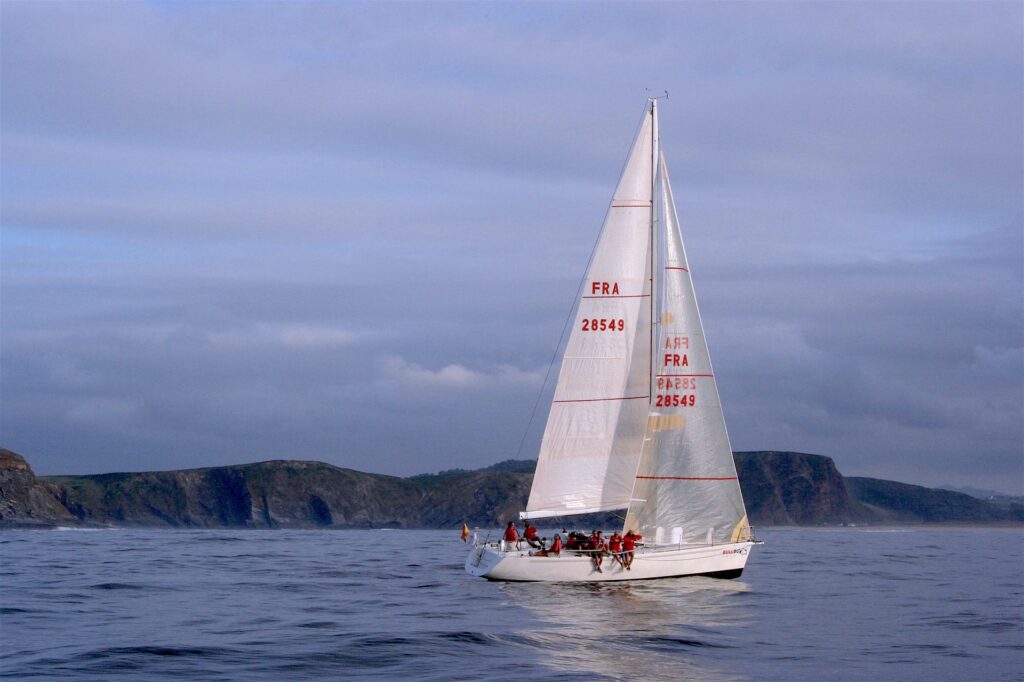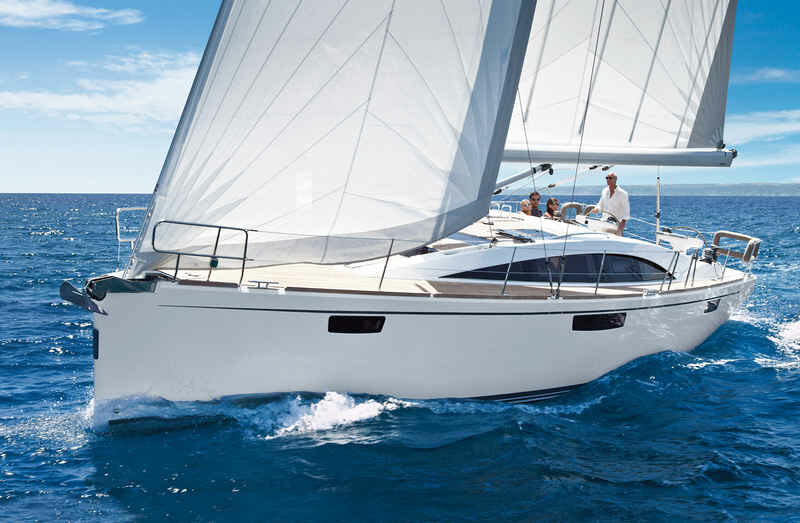So, maybe it’s your first time on a sailing yacht? Or perhaps you’ve been on boats before, but you don’t know much about them?
Whatever your reasons are, you know you want to impress your mates the next time you step on a sailing yacht!
If this is the case, you’re in luck! By the end of this article, people will think you’re the skipper of the yacht:
16 Sailing Terms You Need To Know
Now, there are hundreds of sailing words out there, but that’s far too many for this article. So, in this section you’re going to learn the important ones… are you ready?
Great, let’s get started!
- Bow/Stern: It’s an easy one to get started with. The bow is the front of the boat, and the stern is the back.
- Port: When you’re facing forward, the port is referred to as anything left of the boat; basically, you use this term as you you would “left.”
- Starboard: If you’re facing forward, you can use starboard to describe anything to the right of the boat.
- Helm: The helm is where you steer the boat; this could be a giant wheel or a tiller at the ship’s rear.
- Mast: The big metal pole that runs from the floor well up into the air. The sails are hoisted up using a halyard.
- Boom: The boom is the big metal pole that sticks out at a 90° angle to the mast. If people tell you to “watch out for the boom,” make sure you duck, or it’s going to hurt.
- Halyard: The ropes that pull the sails up the mast.
- Mainsail: The mainsail is a large triangular sail on the mast. As you can imagine, this is the most important sail.
- Jib: The smaller triangular sail in front of the mainsail.
- Heeling: This is when the boat leans over the water due to the wind pushing the sail.
- Windward: The side of the boat closest to the wind. When you’re heeling, this will be the side of the ship out of the water.
- Leeward: The side of the boat furthest from the wind. When you’re heeling, this will be the side closest to the water.
- Point Of Sail: This refers to the direction of your boat in regards to the wind. There are eight points of sail, so it’s a good idea to learn them before you go.
- Jibe: Jibe is a way of changing direction where you bring the stern around the boat through the wind.
- Tack: The phrase has two meanings, but both are just as important as the other. Using it as a verb means to change direction by turning the bow through the wind. If you use it as a noun, tack means you’re on course with the wind.
- Skipper: You might already know this one, but just in case, it’s the captain of the boat.

Final Thoughts
As mentioned earlier, there are many more sailing phrases to learn, but these will come in handy if you’re trying to impress your mates.
Get familiar with the words and their meanings, and you’ll sound like you were born to be at sea.

